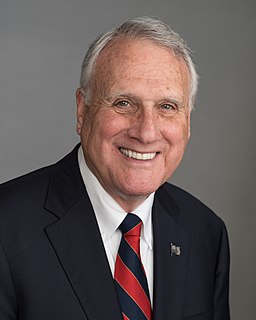A Quote by Orrin Hatch
Because judges may not issue advisory opinions, judicial nominees may not do so either, especially on issues likely to come before the court. That rule has always been honored.
Related Quotes
With Republicans in control of the Senate for the first time since Barack Obama took office, the president may find it harder to appoint left-wing lawyers to judgeships. Whether he compromises on some of his nominees, including any to the Supreme Court, may depend on the willingness of the new Republican majority to engage the president on judicial philosophy.
Conservatives . . . may decide to join the game and seek activist judges with conservative views. Should that come to pass, those who have tempted the courts to political judging will have gained nothing for themselves but will have destroyed a great and essential institution. . . . There are only two sides. Either the Constitution and statutes are law, which means their principles are known and control judges, or they are malleable texts that judges may rewrite to see that particular groups or political causes win.
During the Obama years, the Republicans have done an unprecedented amount of stonewalling on cabinet-and-below appointees. I would also argue that their war on judicial nominees has been way beyond what went before. Really, if the president nominated God to serve on the D.C. Court of Appeals, Mitch McConnell would threaten a filibuster.
How we decide the vexed issue of the method of selection of judges of the Supreme Court and the high courts would determine the future of our democracy and the rule of law in the country. We are faced with the twin problem of selecting the best judges and also ensuring that the judiciary would be insulated from executive interference.
Conservatives shouldn't count on the Supreme Court to do our work for us on Obamacare. The Court may rule as it should, and strike down the mandate. But it may not. And even if it does, the future of health care in America - and for that matter, the future of limited government - depends ultimately on the verdict of the American people.





























